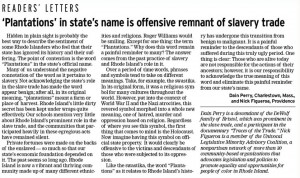Wed 17 Jun, 2009
California weighs apology for Chinese immigrants
Comment now Filed under: Politics, Remedies| Tags: Apologies, Asian Americans, Chinese immigrants, Legislation |
I’m often asked, when discussing apologies, reparations, or other proposals for addressing the legacy of slavery and Jim Crow, whether or not such measures have been taken for other historical events.
In weighing how to respond to historic injustices, a problem for which we have no widely-accepted and time-tested solutions, it seems to help people to know what precedents exist. It matters, for instance, that the U.S. apologized and offered reparations for interning Japanese-Americans in concentration camps in WWII, even though it took a half-century—and, in some cases, reparations had to be paid to descendants of the original victims. There are other examples, including the 1993 congressional apology to native Hawaiians and apologies for slavery by the U.S. House and eight state legislatures in the last two years. Other apologies are currently being considered, including ones in the U.S. Senate for slavery and the treatment of Native Americans.
Today, another potential precedent has emerged: Next week, the California State Assembly is scheduled to consider a measure which would apologize for discrimination against Chinese immigrants and their descendants in the 19th and 20th centuries.


